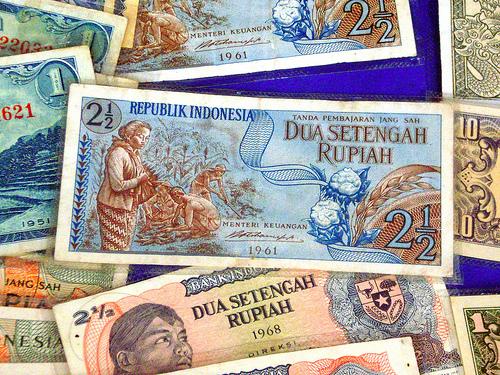
Why is Indonesia facing further funding risks?
Its April trade balance dipped into a $641bn deficit and could put the country's funding flows in a bind.
Here's more from Morgan Stanley:
Indonesia's trade surplus has been narrowing and the April numbers have now tipped from surplus into deficit territory at -US$641bn (vs +US$926bn in Mar-12). Specifically, exports growth contracted -3.5%YoY (vs +5.4YoY in Mar-12) whilst imports were relatively more resilient at +11.7%YoY (vs +12.7%YoY in Mar-12). On a seasonally adjusted sequential basis (MS' calculations), exports contracted -2.8%MoM (vs -2.5%MoM in Mar-12). Imports fell a smaller -0.7%MoM (vs -2.1%MoM in Mar-12).
A combination of slower global demand, softening commodity prices (~61% of exports are commodity-related) and still relatively healthy domestic demand, especially in the investment segment, continue to put pressure on the trade balance. Indeed, the breakdown of trade details suggests that a compression of trade surpluses was seen in commodity-related segments such as crude materials, mineral fuels and animal/vegetable oils and fats. Meanwhile, a widening of trade deficit can also be seen in manufactured goods and machinery/transport equipment, segments which seems more related to investment.
April trade deficit poses risks to BI's view of a smaller current account deficit in 2Q12, something which they highlighted in the investors' conference call. It also poses downside risks to our current account balance forecast which now sits at 0.2% of GDP for 2012. In terms of macro implications, a wider current account deficit would accentuate funding risks in Indonesia given current global risk aversion and Indonesia's already high external funding linkages compared to others.
Indeed, on Indonesia’s external funding linkages, recall that foreign ownership of outstanding government bonds stands at 28.8%, higher than other Asian economies. Additionally, Indonesia’s short-term external debt-to-FX reserve ratio is also relatively higher compared to others in the region. This means that it is more vulnerable to a scenario whereby short-term foreign funding is not being rolled over in a risk-off environment whilst at the same time, it has relatively lower FX reserves buffer to cushion against such liquidity and currency risks. Overall, given that Indonesia does not have reserve currency status, a wider current account deficit will likely accentuate funding risks and policymakers would effectively be ceding control of macro stability to global forces when global macro shocks cause funding flows to come unstuck.
























 Advertise
Advertise









